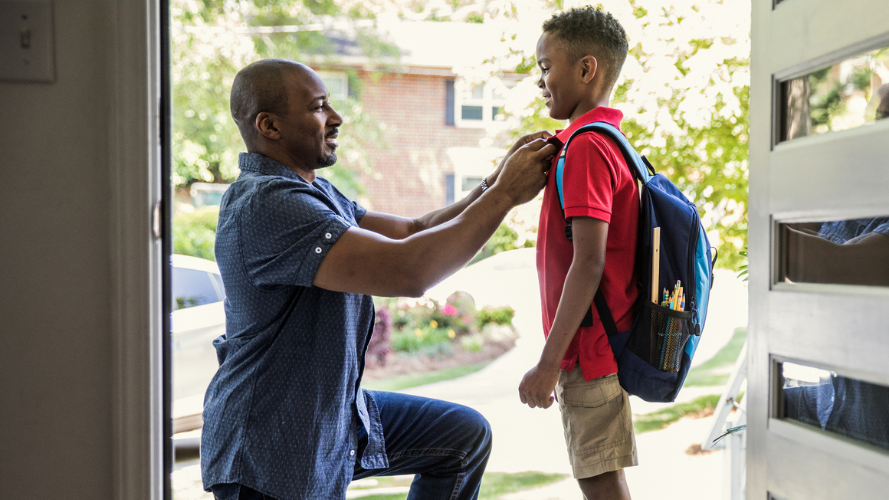- Schedule a Checkup: Schedule a back-to-school checkup with your child’s pediatrician. The doctor will review any health concerns and make sure your child’s vaccines are up-to-date.
- Go for an Eye Exam: Vision problems can create barriers to learning. If your child mentions having trouble seeing, or you notice them squinting or closing one eye to see better, schedule an eye exam.
- Set a Sleep Schedule: Get your child back on a regular bedtime schedule before school starts. Make sure to remove electronics and other distractions from their room at night.
- Talk to the School Nurse: Update the school nurse on medications your child takes and any health conditions they should be aware of, such as allergies or asthma. Work with them to develop action plans and communicate these plans to appropriate contacts.
- Prep Your Paperwork: Get your child’s medical records organized and update their emergency contact information. Complete a consent-to-treat form and give copies to the school nurse. The form allows school staff to authorize medical treatment in an emergency and should include information on your child’s medications, medical conditions, pertinent family history and emergency contacts.
- Buy Healthy Supplies: In addition to new pens, pencils and notebooks, make sure to buy plenty of tissues, Band-Aids and hand sanitizer for your child to have on-hand at school. If your child carries an inhaler or epi-pen with them to school, check the expiration date on them.





